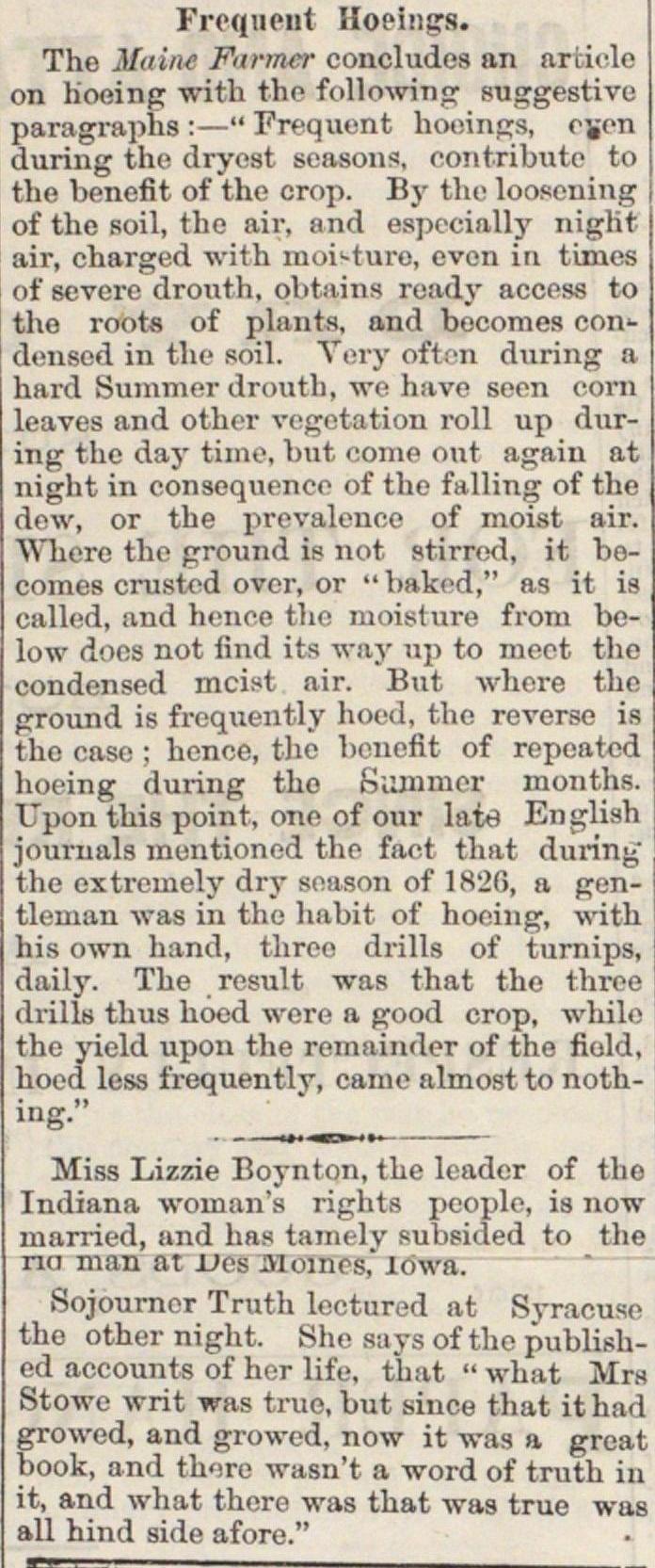Frequent Hoeings

The Maine Fnnncr concludos an article on hoeing with the following suggestive paragraphs : - " Frequent hoeings, ejen during the dryest seasons, nonfrribute to the benefit of the erop. By the loosening of the soil, the air, and espccially nigKt air, charged with moi'-ture, even in times of severe drouth, obtuins roady access to the roots of plants, and bocomes condensod in the soil. Vory off en during n hard Summer drouth, we have seen eoni leaves and other vegetation roll up duriiifr tlie day time, but eome out again at night in consequence of the falling of the dew, or the prevalence of moist air. Vhero the ground is not stirred, it becomes crusted over, or "baked," as it is called, and henee the nioisture from below doos not find its way up to moet the condensed mcist air. But where the ground is frequently hoed, the reverse is the case ; henoe, the benefit of repeatcd hoeing during the Siunmer months. Upon this point, one of our lata English jouruals mentioned the faet that during' the extremely dry season of 1820, a gentleman was in the habit of hoeing, with his own hand, three drills of turnips, daily. The result was that the three drills thus hoed were a good erop, while the yield upon the remainder of the fiold, hoed less frequently, eame almost to nothing-" Miss Lizzie Boynton, the leader of the Indiana woman's rights pcople, is now married, und has tamely subsided to the no man at jjcs aiomos," lówa. Sojourner Truth lectured at Syranuse the other night. She says of the published accounts of her life, that " what Mr Stowe writ was true, but since that ithad growed, and growed. now it was a great book, and thire wasn't a word of truth in it, and what there was that was true was all hind side afore."
Article
Subjects
Old News
Michigan Argus